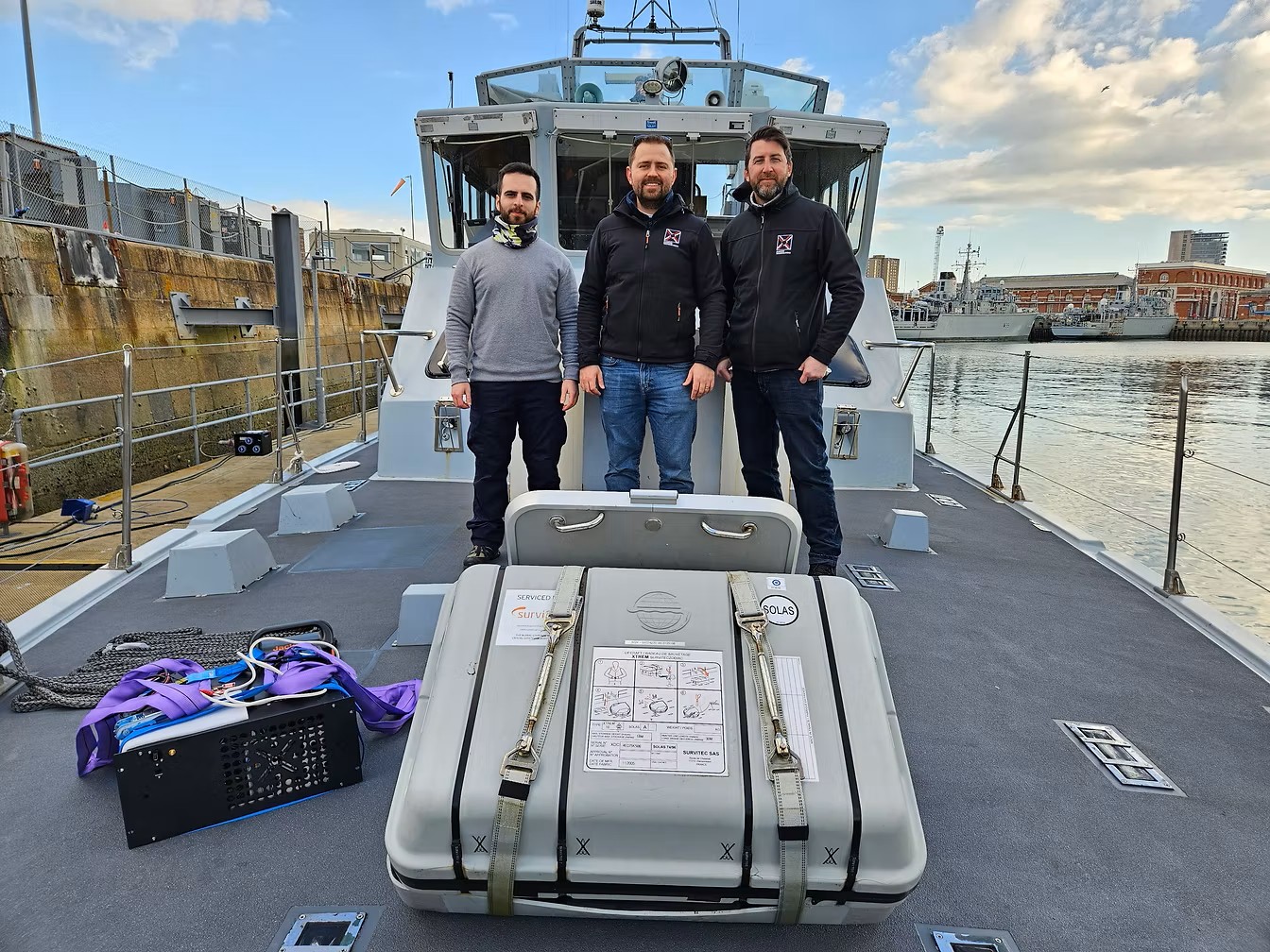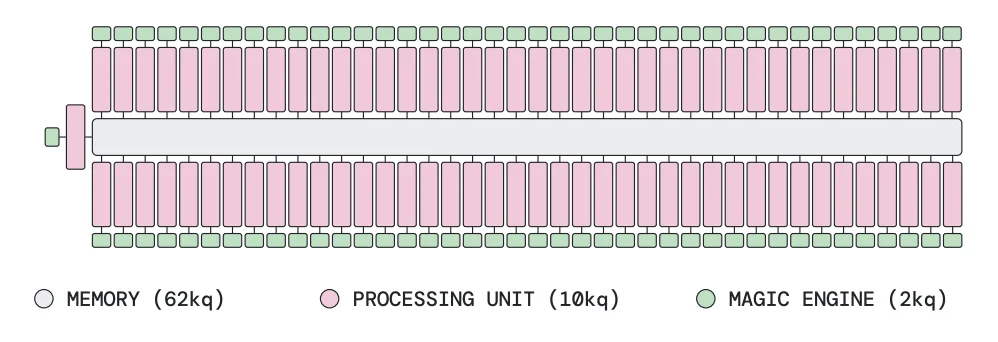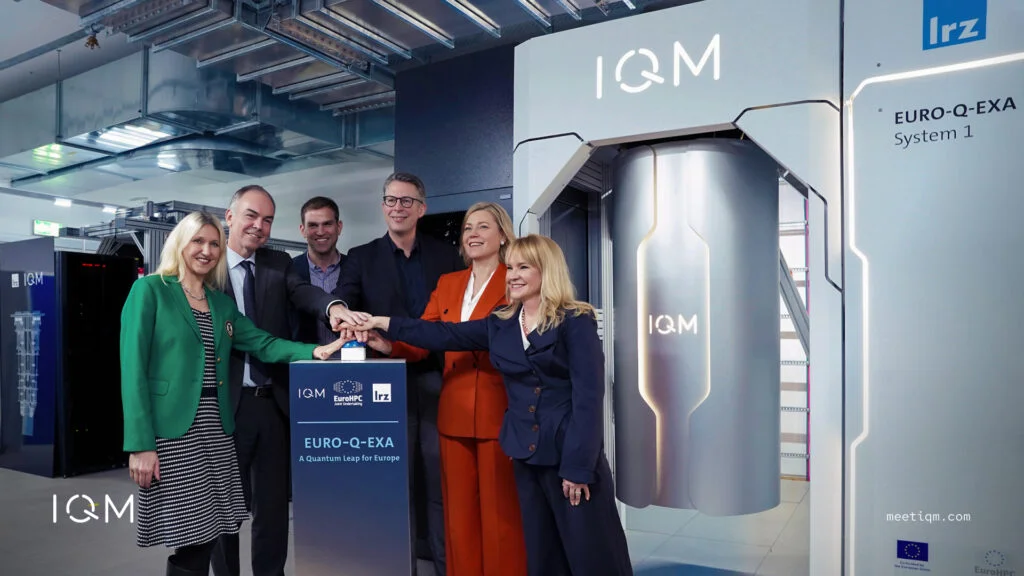Insider Brief
- Quantum sensing startup Aquark Technologies completed a first-of-its-kind sea trial of its cold atom-based AQlock atomic clock aboard HMS Pursuer, demonstrating continuous operation in rough offshore conditions over three days.
- Backed by Innovate UK and supported by the Royal Navy’s Disruptive Capabilities and Technologies Office and Dstl, the test marks a milestone in Position, Navigation, and Timing (PNT) technology by showcasing robust GNSS-independent timing capability.
- The AQlock uses a novel “supermolasses trap” technique for trapping atoms at near absolute zero, allowing for high-precision timekeeping in compact, portable formats and advancing sovereign UK capability in quantum navigation systems.
PRESS RELEASE – – Quantum sensing specialists, Aquark Technologies, announced the completion of a world-first trial, their second to be facilitated and endorsed by the Disruptive Capabilities and Technologies Office (DCTO) of the Royal Navy. Aquark’s atomic clock system, the AQlock, functioned continuously aboard HMS Pursuer in the Solent area over three days, marking an important milestone for Position, Navigation and Timing (PNT) technology and a step forward in the mission to reduce global reliance on Global Navigation Satellite Systems (GNSS).
The Defence Science and Technology Laboratory (Dstl) supported the Company’s latest trial, providing time and frequency test and evaluation expertise and equipment. The trial was the first of its kind, testing the stability of Aquark’s AQlock, the UK’s first industrially designed and built cold atom-based atomic clock, when operated in open sea conditions. By demonstrating its ability to continuously operate aboard a Royal Navy vessel in rough offshore conditions, the Company is now closing in on its goal to improve conventional PNT, and reduce global reliance on GNSS for military operations, infrastructure, telecommunications, finance, transportation, and many other sectors.
The AQlock was developed with support from a Small Business Research Initiative (SBRI) grant from Innovate UK and aims to improve conventional PNT by transferring the stability of atoms that have been cooled to near absolute zero to a conventional oscillator to reduce long-term drift. This makes the technology capable of maintaining high precision for longer, without the usual required correction from GNSS, augmenting existing timing capabilities.

The technology is underpinned by the supermolasses trap, a unique method of trapping atoms pioneered by Aquark that makes the technology highly robust, portable, and more affordable. The technology is ideal for miniaturisation due to its reduced component count and power requirements when compared to alternative methods.
Chester Butterworth, Head of Strategy, Disruptive Capabilities and Technologies Office, stated: “The Royal Navy remains committed to exploring disruptive technologies that offer the potential for significant operational advantage. The outcome of this trial aligns with the UK’s sovereign capability goals and paves the way for future innovation that will enable the Royal Navy to leverage best-in-class technologies. The capabilities of Aquark’s system to improve existing Position, Navigation, and Timing methods, outside of the laboratory and in harsh, remote environments, is a milestone achieved by very few systems to date.”
Dr Matthew Aldous, Principal Quantum Scientist, said: “Dstl is pleased to have played a pivotal role in supporting Aquark and the Royal Navy in trialling this emerging technology. There is huge potential for quantum systems to unlock future capability, and rigorous testing in deployed environments is key to understanding the right applications for them. As these tools progress in maturity and ruggedness, we look forward to further opportunities to bring them to bear on real challenges faced by defence and security personnel.”
Commander Carla Higgins, MBE, Commanding Officer Coastal Forces Squadron said: “Coastal Forces Squadron is delighted to have taken part in trialling this unique technology. P2000 Inshore Patrol Vessels are an ideal platform to provide the challenging at-sea conditions required to put systems to the test. The team in HMS Pursuer appreciates the exposure to such new equipment and the opportunity to learn about the technology which will contribute to the UK’s capabilities of the future.”
Alexander Jantzen, Co-Founder and COO, Aquark Technologies said: “We have been privileged to partner with the Royal Navy for a second time and focus on applying our cold atom core to a practical task. It is an exciting step forward to demonstrate that the AQlock can deliver stable, functional outputs under real-world conditions. The trial demonstrates that we are closer than ever to realising practical use cases for our technology and establishes a new benchmark for the robustness of similar systems. Ultimately, it moves us closer to a future where critical technologies can continue to operate seamlessly, even in the absence of GNSS.”















